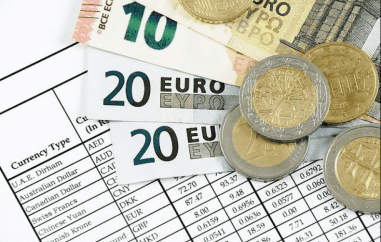This week, Turkey caught the eye with positive tourism and foreign trade figures. But inflation figures released on Thursday sharpen the focus once again on the ongoing economic crisis: analysts expect consumer prices to rise 47% year-on-year in January – the highest level in 20 year. In December, the figure was 36%. President Recep Tayyip Erdogan has told his compatriots that they will have to live with high inflation “for some time to come”. The central bank doubled its end-of-year inflation forecast to 23%.
Erdogan had reacted to the bad news as he often does: he is firing staff. Since 2019, he has replaced 3 central bank governors, 2 finance ministers and other senior officials. Over the weekend, not only the Minister of Justice had to take his hat off, but also the head of the statistics office TÜIK, which is responsible for the inflation figures. Erdogan appointed Sait Erdal Dincer only 11 months ago. This will do little to improve the tarnished reputation of the statistics institute, which has had to defend itself against accusations of disseminating embellished figures.
At least the new boss, Erhan Cetinkaya, was able to report positive news on his first day on the job. For example, tourism revenues have doubled to nearly $25 billion in 2021. The labor-intensive industry is a major foreign exchange earner. In normal times, it accounts for one-eighth of economic output. While $25 billion is still a far cry from the $34.5 billion generated in the pre-Corona year of 2019, revenue from October to December was almost at the same level as at the end of 2019, leaving hope for a new year with many more visitors, not just from Russia and Germany, which led the way with 4.6 and 3 million tourists respectively in 2021.
The foreign trade deficit also narrowed by 7.5% to $46 billion in 2021. Measured in dollars, the 33% increase in exports exceeded the 24% increase in imports. Even if the December figures showed a large deficit, Erdogan could be encouraged in his policy of increasing exports to generate foreign exchange earnings. In this way, he wants to turn the current account deficit, which includes all the income and expenditure of the national economy, into a surplus. Low interest rates are intended to stimulate the investment needed to achieve this.
A harmful side effect of low interest rates and rising inflation is currency depreciation. For example, the lira depreciated by 45% against the dollar last year. Since Erdogan rejects interest rate hikes, he must try to stabilize the lira by other means. Central bank foreign exchange interventions are an example, but they are not always successful, as shown by the “burning” of $128 billion in reserves in previous years, criticized by the Turkish opposition. In December alone, the central bank spent about $20 billion to support the lira, according to bankers’ estimates released by Reuters.
This is flanked by SWAP agreements with foreign central banks that help settle international transactions in local currencies. Any help is welcome there: Last week, SOCAR, Azerbaijan’s state-owned oil company, announced that it had deposited one billion euros with the Turkish central bank for 6 months.
Erdogan is also targeting the vast foreign currency and gold holdings of Turkish private households. In December, it launched a state monetary insurance program that promises to compensate any foreign exchange losses for the investment period of 3 to 24 months from the state budget. Exporters are required to hold a quarter of their foreign currency assets in lira, and since Tuesday the central bank has also been courting Turks living abroad. Those who transfer dollars, euros or pounds to Turkey and deposit them in special lira accounts receive attractive returns in addition to exchange rate protection. State banks currently pay up to 18% interest, private banks even more. Beforehand, all this helps to read it. Since its price debacle of 18.40 lira per dollar in December, the exchange rate has stabilized around 13.40 lira per dollar.
Analysts, however, doubt that the concept will be viable by the date of the mid-2023 elections. Dennis Shen, director of the Berlin-based Scope rating agency, told FAZ that Turkey faces “many structural problems, such as rising public debt, loose monetary policy, challenges to the ‘central bank independence and the growing interconnectedness of government and banks’. In the past, Turkey was able to score points with sound public finances, a stable banking system and a flexible exchange rate, he said. “However, with the current political mix, these strengths are gradually being sacrificed ahead of the crucial 2023 elections, in the name of stabilizing the economy.”
Picture by photo blend

